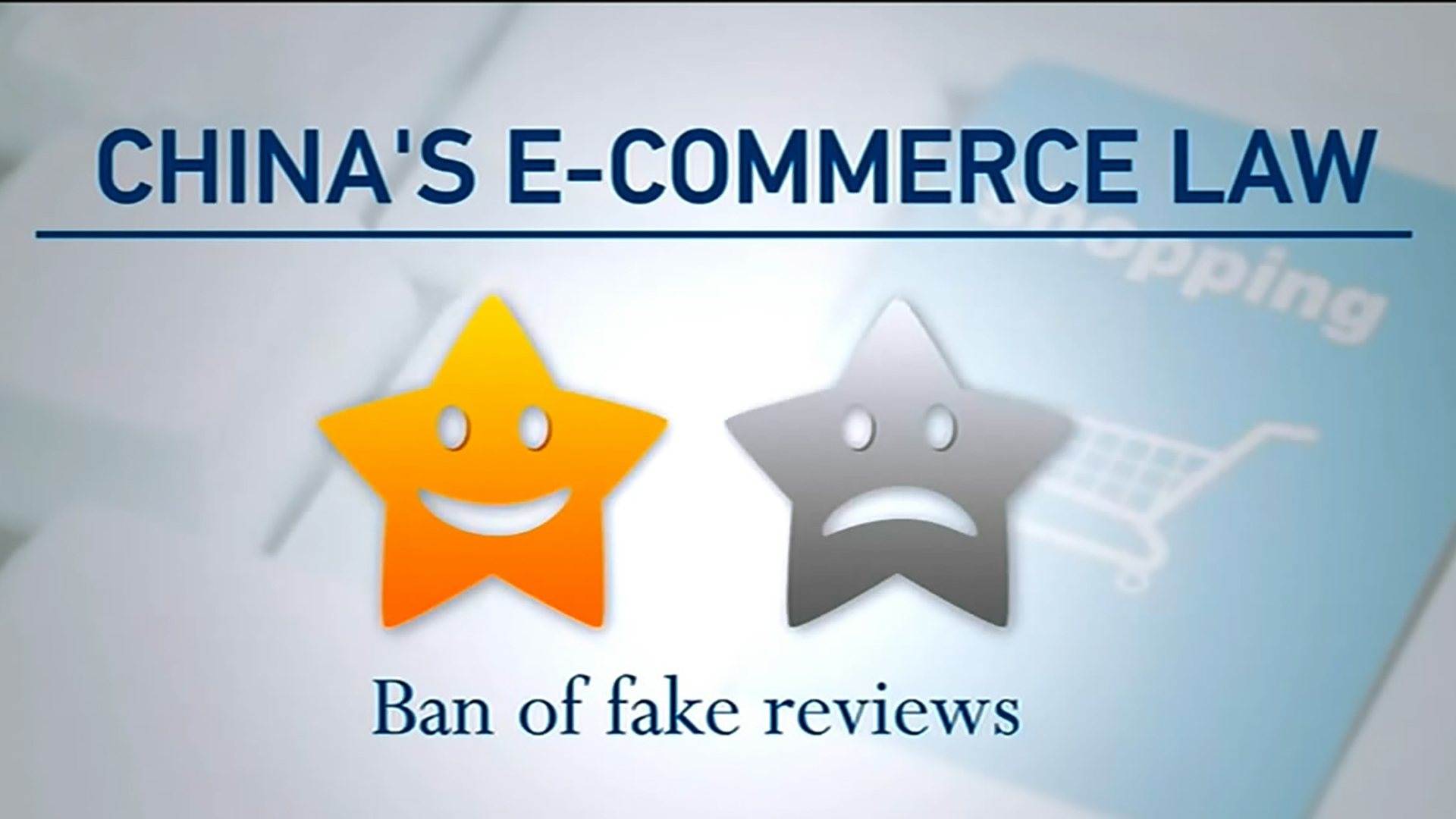
Business
22:33, 02-Jan-2019
Expert considers the objective of new e-commerce law to be 'realizable'
Updated
21:39, 05-Jan-2019
By Wang Yue
06:15

China's first e-commerce law took effect on Tuesday with the aim of better protecting consumer interests. And that goal is regarded as “achievable, manageable and realizable,” according to Li Wen, associate professor of law at China University of Political Science and Law.
The law states that e-commerce operators are now defined as platform operators, such as Alibaba's Taobao, merchants on platforms, and those operating on their own websites or via other web services, like the messaging app WeChat.

Li Wen, associate professor of law at China University of Political Science and Law. /CGTN Photo
Li Wen, associate professor of law at China University of Political Science and Law. /CGTN Photo
“The new e-commerce law is so vital. The first category is e-commerce platform business. The second one is in-platform business. And the third one is the self-build website and other information networks,” the professor said.
In the meantime, Li stressed the “joint and several liability,” which will play a significant role in terms of Intellectual Property Right (IPR) protection.
“If a potential IPR holder is claiming that one of the in-platform businesses has infringed his/her IPR, for example trademark or logo, then the IPR holder can actually give notice to the e-commerce platform, asking the platform to stop, delete or block those logos. If the platform did not do anything, then the platform and the in-platform business will be held to the joint and several liability. And the IPR holder can sue both or one of them,” he explained with an example.
00:54

Moreover, online platforms are prevented from turning search results into recommendations made only based on their personal information, including previous purchase records. Merchants also need to clearly disclose any clauses or bundles they placed on sales and cannot assume consent from the consumer. The new legislation also protects consumers against fake reviews.
E-commerce platforms will have to act as gatekeepers to render the law effective, the new law stipulates. “I think the objective of this law is achievable, manageable and realizable,” Li noted.
From his perspective, most e-commerce platforms are “centralized operating,” which means banning or deleting from the top-down level is possible. “And artificial intelligence or big data technology is powerful enough. Those automatic services actually have been serving us comprehensively,” he added.
Li expected that scale of overseas sellers, known as “Daigou,” will be shrinking temporarily. In the long term, on the contrary to some concerns over the future of e-tailers, Li is optimistic about them and even the entire industry.
“This is a very promising law. There are two key principles that have been implemented. First one is the online-offline equivalence and technological neutrality principle…… And the second point is the level playing field principle to create a rightfully balanced bargaining positions between small and medium in-platform businesses and those mega platform providers,” the professor elaborated.

SITEMAP
Copyright © 2018 CGTN. Beijing ICP prepared NO.16065310-3
Copyright © 2018 CGTN. Beijing ICP prepared NO.16065310-3